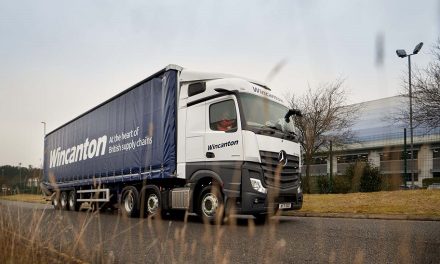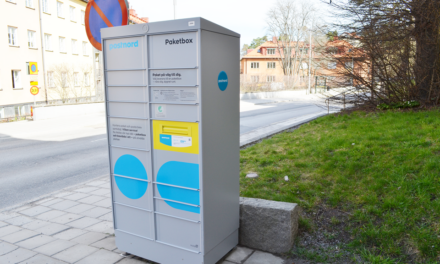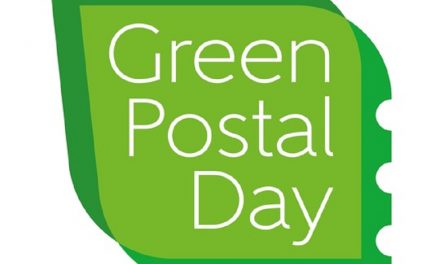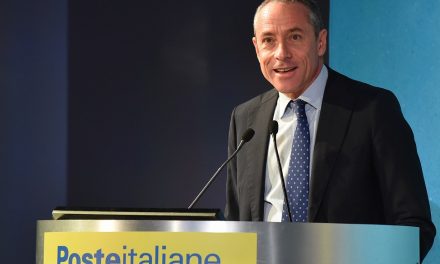
Deutsche Post DHL sees double-digit growth
Deutsche Post DHL generated a double-digit increase in revenue in the first half of 2010. Despite a slight decline in the MAIL division, also resulting from a regulatory change in value-added tax that took effect in July, consolidated revenue rose 13.9% to EUR 12.8bn driven by strong growth generated by all three DHL divisions.
In particular, this performance reflects increased transport volumes, higher freight rates and the continuing success in attracting new customers. During the past quarter, the Group also profited from positive currency effects, said a spokesman.
Additional margin gains in the DHL divisions also resulted in the significant increase in profitability.
Underlying EBIT totaled EUR 543m, 43.7% above the previous year’s level.
Efficiency improvements also contributed significantly to the Group’s ability to generate a consolidated net profit of EUR 226m in the third quarter, following the loss of EUR 83m in the same period last year.
“The company’s very good performance in the third quarter demonstrates once again that we have an exceptionally good position that allows us to profit tremendously from positive economic trends,” said Deutsche Post DHL CEO Frank Appel. “Our strategy is robust, our efficiency programmes are paying off, and our customers are rewarding our efforts.”
In the third quarter of 2010, reported EBIT more than doubled, rising from EUR 231m in the same period last year to EUR 545m in 2010.
In addition to the significant revenue and profitability improvements another factor behind this increase was the marked reductions in non-recurring expenses that were realised as planned.
While in the previous year, non-recurring expenses totaled EUR 147m, no noteworthy non-recurring expenses occurred during the third quarter of this year. The Group’s net financial result improved as well. At minus EUR 222m, it was well above the previous year’s total of minus EUR 310m.
This improvement largely reflects changes in the valuation of financial instruments related to the sale of Postbank: While last year’s figure included negative effects totaling EUR 188m, the effect in relation to the Postbank sale had only an impact of minus EUR 123m on the net financial result in the third quarter of this year.
The consolidated net profit after minorities climbed to EUR 226m. This equals an improvement in earnings per share to EUR 0.19. In the same quarter last year, the company reported a consolidated net loss of EUR 83m and earnings per share of minus EUR 0.07.
The Group’s capital expenditure totaled EUR 282m in the third quarter, 8.4% below the previous year’s level. This figure includes investments in new technologies and products in the MAIL division that range from state-of-the-art letter-sorting equipment, and new camera and scanning technology in the parcel centres to the E-Postbrief introduced in July and the shopping portal “Mein Paket”.
The Group expects capital expenditure to increase in the fourth quarter. Full-year investments are planned to be around EUR 1.3bn and thus will conclude the year slightly below the original target of EUR 1.4bn.
Bolstered by the improvements in underlying EBIT and the significant reduction in restructuring expenses, the Group’s operating cash flow climbed by EUR 133m to EUR 632m during the third quarter of 2010.
Free cash flow was also affected by net cash from the sale of money-market funds. During the third quarter, it increased by EUR 1.6bn to EUR 1.3bn (2009: minus EUR 306m). As a result of the dividend payment (EUR 725m), the contribution to the Bundes-Pensions-Service (EUR 556m) and a cash outflow from restructuring (EUR 684m) the Group’s net liquidity decreased by EUR 762m compared with the end of 2009.
However, at EUR 928m net liquidity was almost EUR 400m above the level at the end of the second quarter, underlining the Group’s very solid liquidity position after the first nine months of the year.
“During the third quarter, we remained true to our strategy and carefully invested in the organic expansion of our business,” CFO Larry Rosen said. “Deutsche Post DHL continues to be solidly financed and has – also thanks to the very positive performance of its operating business – the necessary financial flexibility to reach its growth targets and systematically exploit opportunities that present themselves.”
In the first nine months of fiscal year 2010, revenue rose 11.2% to EUR 37.6bn. As a result of significant increases in volume and revenue as well as efficiency gains, the Group’s underlying EBIT increased 70.2% to EUR 1.6bn.
As planned, non-recurring items declined compared with the same period last year, nearly dropping by half to EUR 302m (2009: EUR 580m). In addition to higher revenues and the improved efficiency, this effect helped fuel the strong rise of the reported EBIT from EUR 367m in the first three quarters of 2009 to EUR 1.3bn from January to September 2010. At EUR 2.1bn, consolidated net profit after minorities more than doubled year-over-year (2009: EUR 927m).
On top of the operating improvements, this figure includes positive effects related to the Postbank sale, which have risen by about EUR 600m above last year’s level during the first nine months of 2010. Year-to-date earnings per share were EUR 1.70, well above the previous year’s number of EUR 0.77. Operating cash flow also rose measurably. It climbed to EUR 902m in the first nine months of the year, a more than threefold increase from EUR 270m generated in the same period of 2009.
As a result of the continuation of the economic recovery and the Group’s good earnings performance during the first nine months of the year, Deutsche Post DHL has been able to improve its earnings guidance for the full year 2010 and raise the lower end of the planned range for the Group’s underlying EBIT. The Board of Management now projects the Group’s underlying EBIT to total between EUR 2.0bn and EUR 2.1bn.
Deutsche Post DHL had previously expected an amount in the range of EUR 1.9bn and EUR 2.1bn. Earnings of the MAIL division are expected to be between EUR 1.1bn and EUR 1.2bn. This represents an increase of EUR 100m in the lower end of the range.
The DHL divisions are now expected to contribute more than EUR 1.3bn to overall earnings (previous guidance: about EUR 1.3bn). At the beginning of the year, the company had expected its logistics divisions to produce no more than EUR 1.1bn.
As a result, DHL’s earnings contribution will exceed that of the MAIL division for the first time. As has been announced since the beginning of the year, Corporate Center/Other expenditures will total about EUR 400m.
The Group also continues to expect that consolidated net profit in 2010 will significantly improve compared to 2009. From today’s perspective, the positive earnings trend is likely to continue in 2011, even though global economic performance remains somewhat unpredictable.
“In recent years, we have systematically created the conditions that enable the Group to sustainably improve its profitability. With underlying EBIT that will likely total more than EUR 2bn, we will take another big step forward this year. But we are still a long way from reaching our full potential,” CEO Frank Appel said.
MAIL division: increasing parcel business
Revenue in the MAIL division fell 2.7% to EUR 3.2bn in the third quarter. This decrease primarily resulted from the effects of the value-added tax on revenue with business customers that began on July 1 and the price discounts that were offered in response to the change. The ongoing substitution of physical letters by electronic media and the loss of the Quelle business in Germany negatively impacted revenues as well. In contrast, the parcel business in Germany continued to perform very dynamically. Against the backdrop of rapidly growing Internet retailing, revenue here climbed by more than 5%.
This business unit’s very positive earnings performance and the continued strict cost discipline were able to limit the impact of the value-added tax effect and higher wages on the division’s overall profitability. Nonetheless, underlying EBIT declined EUR 67m to EUR 259m in the third quarter of 2010 from EUR 326m in the third quarter 2009.
EXPRESS division: restructuring bears fruit
In the EXPRESS division, the positive development of the first half of 2010 continued in the third quarter. Revenues were up 11.7% to EUR 2.7bn (2009: EUR 2.4bn) primarily driven by significant increases in international shipments. This gain more than offset decreases in the day-definite domestic business, mostly resulting from the sale of the domestic express businesses in the United Kingdom and France. Higher income from fuel surcharges also contributed to the rise in revenue. The division’s earnings improved markedly as well. Underlying EBIT rose from EUR 131m in the same quarter last year to EUR 194m in the third quarter of 2010, an increase of 48.1%.
The improvement reflected the successful refocusing of the express business: in addition to higher revenue, the significant profitability enhancement resulted in particular from the completion of the restructuring in the United States, the withdrawal from the domestic express business in the United Kingdom and France as well as the efficiency enhancing programs successfully implemented around the world.
GLOBAL FORWARDING, FREIGHT division: strong growth in revenue and earnings
The GLOBAL FORWARDING, FREIGHT revenues profited the most from the recovery of the global economy in 2010. Transport volumes, particularly in air freight, have continued to rise considerably in the third quarter of 2010. In combination with higher prices, high double-digit revenue gains were generated mainly in the air but also in the ocean freight category. Overall, the division’s revenues rose EUR 1bn to EUR 3.7bn in the third quarter of this year.
This represents a jump of 35.8% over the previous year’s level of EUR 2.7bn, reflecting a further acceleration of growth in this division since the second quarter. This was also the case for profitability as the division was increasingly able to pass on the higher freight rates being charged as a result of increased demand for tighter freight capacities to its customers. This fact coupled with strict cost discipline allowed underlying EBIT to rise 34.2% from EUR 76m in the third quarter of 2009 to EUR 102m in 2010.
SUPPLY CHAIN division: successful business with new and existing customers
The SUPPLY CHAIN division also continued its strong performance in the third quarter and significantly increased revenues. Despite the loss of the Quelle business in Germany and the systematic withdrawal from underperforming contracts, revenues climbed 12.9% to EUR 3.4bn. New business wins, the increase in existing business activity in all regions and positive currency effects were the main reasons for this strong growth. In the third quarter alone, additional contracts worth around EUR 200m were concluded with new and existing customers. New business in the first nine months of the year now totals EUR 700m.
In the third quarter, the efficiency programs successfully introduced last year resulted in further margin improvements in every region. As a result, underlying EBIT rose significantly to EUR 82m, after an operating loss of EUR 84m was produced last year – also as a result of charges related to the Arcandor bankruptcy.













